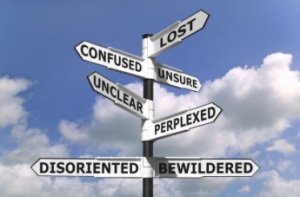 A recent article in The Economist discussed the impact of complexity in business. It highlights, indirectly, some themes that I think infiltrate all segments of society and that raise new challenges for personal lives as well as organizations. The Schumpeter column points out that “…managing complexity is at the top of businesspeople’s agenda. Businesspeople are confronted by more of everything than ever before. They have to make decisions at a faster pace.” For example, new products have a more uncertain future. “Harvard Business School’s William Sahlman warns young entrepreneurs about ‘the big eraser in the sky’ that can come down at any moment and ‘wipe out all their cleverness and effort’.”
A recent article in The Economist discussed the impact of complexity in business. It highlights, indirectly, some themes that I think infiltrate all segments of society and that raise new challenges for personal lives as well as organizations. The Schumpeter column points out that “…managing complexity is at the top of businesspeople’s agenda. Businesspeople are confronted by more of everything than ever before. They have to make decisions at a faster pace.” For example, new products have a more uncertain future. “Harvard Business School’s William Sahlman warns young entrepreneurs about ‘the big eraser in the sky’ that can come down at any moment and ‘wipe out all their cleverness and effort’.”
The article contrasts two different views of the solutions to growing complexity: One is to recognize and accept it. It cites Don Tapscott, of “Wikinomics” fame, who observes that “…the information revolution is replacing one kind of management (command-and-control) with another (based on self-organising networks).” And John Hagel of Deloitte has talked about “…the growing disconnect between “linear institutions and the non-linear world that is developing around us.” That is, “Organisations built for this new world may look complex and unwieldy but they have an inner logic and powers of self-organisation.” The alternative solution is to impose simplicity, which the column suggests is a more persuasive strategy: “It is striking how many of the world’s most successful businesses thrive on simplicity of some sort.” And, “The biggest threat to business almost always comes from too much complexity rather than too much simplicity. The conglomerates of the 1960s crumbled because they tried to manage too many businesses in too many different industries.” For the full article, click here.
I think these observations raise broad questions, beyond business: What constitutes the most adaptive, flexible, productive and psychologically healthy ways of dealing with complexity within our individual lives, at one end of the spectrum; and for public policy, at the other? The ongoing, systemic transformation impacts personal relationships, career decisions and dilemmas, one’s values and mental outlook, one’s role as a participant citizen in society; and how to conduct one’s life, overall, in this changing world. What’s the end-game is, so to speak? These are psycho-social questions that need to be addressed as a whole. They are, well…complex.
